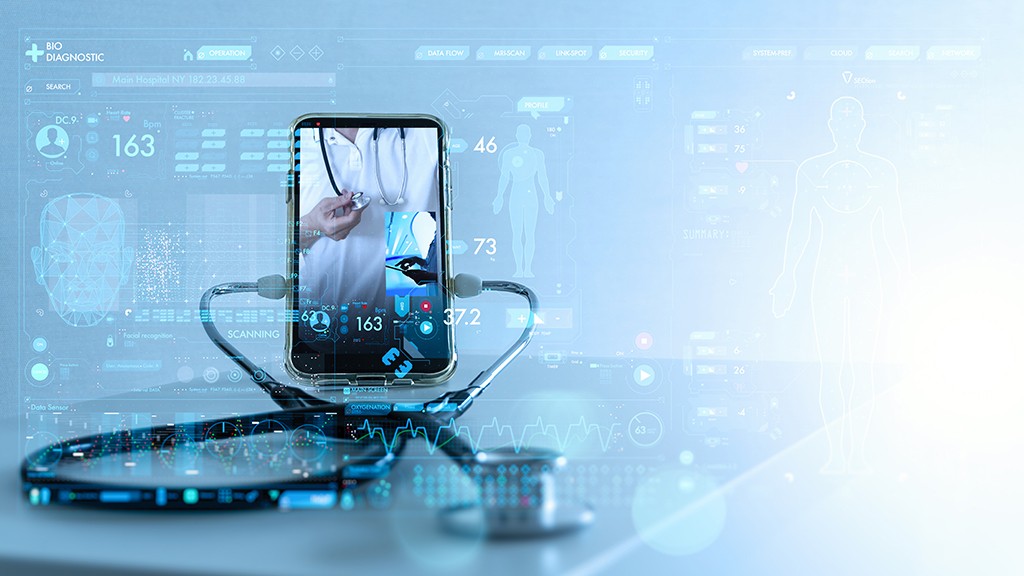The healthcare sector in the UAE is witnessing a major shift, thanks to rapid advancements in telemedicine. With the government’s push towards digital healthcare and increased investment in technology, remote medical services are becoming more accessible, efficient, and patient-friendly. From AI-powered consultations to virtual pharmacies, telemedicine is revolutionizing healthcare in the UAE. Here are 25 key advancements shaping the future of medical care in the country.

1. AI-Driven Virtual Consultations
Artificial Intelligence (AI) is improving telemedicine by providing quick and accurate diagnoses. Many hospitals and clinics now use AI-powered systems to analyze patient symptoms and suggest treatment plans.
2. 24/7 Remote Doctor Access
Patients can now connect with licensed doctors at any time of the day through video calls, mobile apps, and online chat services, ensuring timely medical advice without the need for physical visits.

3. Smart Health Kiosks
The introduction of smart health kiosks in malls, offices, and public places allows people to check their vital signs, consult doctors remotely, and get prescriptions on the spot.
4. Digital Prescriptions and E-Pharmacies
E-prescriptions have eliminated the hassle of carrying paper documents. Patients can receive digital prescriptions directly on their phones and order medicines from online pharmacies.
5. Wearable Health Tech Integration
Smartwatches and wearable health devices can now send real-time health data to doctors, helping in continuous monitoring of conditions like diabetes, heart disease, and high blood pressure.
6. Remote Patient Monitoring (RPM)
Patients with chronic illnesses can use RPM devices that track their health conditions from home. Doctors can access real-time data and adjust treatments accordingly.
7. Teletherapy for Mental Health
Online therapy sessions have become widely available, allowing people to receive counseling and psychiatric help from the comfort of their homes.
8. Advanced Mobile Health Apps
Several mobile apps now provide telemedicine services, from video consultations to lab test bookings and medicine deliveries, streamlining the entire patient experience.
9. Blockchain for Secure Medical Records
Blockchain technology is being used to store medical records securely, ensuring that patient data is protected and can be easily accessed by authorized healthcare providers.
10. Smart Ambulance Services
Ambulances equipped with telemedicine technology enable paramedics to consult doctors while transporting critical patients, ensuring faster decision-making and improved survival rates.
11. Robotic-Assisted Telemedicine Surgeries
Some hospitals in the UAE are adopting robotic-assisted surgeries where specialists can guide procedures remotely using high-tech robotic systems.
12. Virtual Second Opinions from Specialists
Patients can now seek second opinions from global specialists without traveling abroad, thanks to telemedicine platforms connecting them with expert doctors worldwide.
13. AI-Based Symptom Checkers
Chatbots powered by AI are helping patients self-diagnose common illnesses and decide whether they need to see a doctor.
14. VR-Based Pain Management
Virtual Reality (VR) is being used to help manage pain in patients by providing immersive distraction techniques during medical procedures.
15. Telemedicine for Rural and Remote Areas
Telemedicine is bridging the gap in healthcare access for remote communities by enabling them to consult specialists without traveling to urban centers.
16. Home-Based Lab Testing Services
Patients can now book lab tests from home, with healthcare professionals visiting their residences to collect samples and provide results online.
17. 5G-Enabled Telemedicine Services
With the rollout of 5G, telemedicine services have become faster, enabling smoother video consultations and real-time health data sharing.
18. Multilingual Telemedicine Services
Telemedicine platforms now offer consultations in multiple languages, making healthcare accessible to the diverse population of the UAE.
19. Cloud-Based Healthcare Solutions
Doctors can now access patient histories, test results, and treatment plans from any location using cloud-based medical systems.
20. AI-Powered Drug Discovery and Treatment Personalization
AI is playing a major role in identifying effective treatments by analyzing large data sets, leading to personalized treatment plans for patients.
21. Smart Chatbots for Appointment Scheduling
Hospitals and clinics are using AI chatbots to schedule appointments, answer queries, and provide initial medical guidance to patients.
22. Insurance Integration for Telemedicine Services
Many insurance providers in the UAE now cover telemedicine consultations, making remote healthcare more affordable and accessible.
23. Health Data Analytics for Predictive Medicine
Big data analytics is helping doctors predict potential health risks and take preventive measures based on patient history and lifestyle factors.
24. Remote Physiotherapy and Rehabilitation Programs
Patients recovering from injuries or surgeries can now follow virtual rehabilitation programs, reducing the need for frequent hospital visits.
25. Government Initiatives for Telemedicine Growth
The UAE government is actively supporting telemedicine through regulations, funding, and digital health strategies to ensure a more efficient and accessible healthcare system.
Final Thoughts
The advancements in telemedicine are making healthcare in the UAE more efficient, convenient, and accessible. With technology continuing to evolve, the future of medical care looks promising, ensuring that patients receive high-quality treatment anytime, anywhere. These innovations are not only improving patient experiences but also reducing healthcare costs and streamlining medical services. The UAE’s commitment to digital health is setting an example for other nations to follow, making it a leader in the telemedicine revolution.
Also read: How the Middle East Is Quietly Becoming a Global Leader in Renewable Energy













